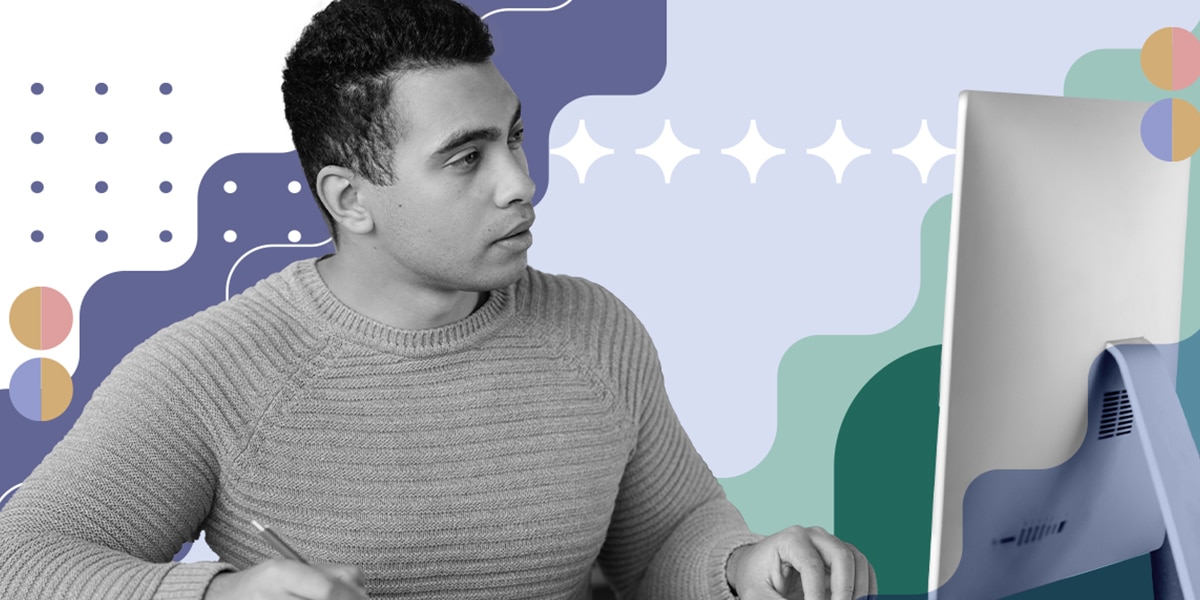What Is the Format of the Psychiatry Board Exam? (& Other ABPN Board Exam FAQs)

There’s no such thing as becoming too familiar with the format of the specific American Board of Psychiatry and Neurology (ABPN) certification exam you’ll be taking in September. By getting to know the overall format of your exam and the breakdown of each section, you’ll be ahead of the game when it comes to exam prep!
If you’re not sure how to familiarize yourself with the ABPN exam you’ll be taking, don’t worry. This post will give you a good overview of both the ABPN general and the child & adolescent exams, so you’ll be ready on test day.
Similarities Between the General Psychiatry and Child & Adolescent Psychiatry Exams
As we’ll see, there are some key differences between the general and child & adolescent exams, but they also have some things in common. We’ll begin by taking a look at some of the similarities between the two ABPN certification exams.
The exams are similar in terms of the types of questions on them, how they’re scored, the exam dates, and how they’re administered.
Let’s examine these four areas in a bit more detail.
1. Types of Questions
Both exams have two types of questions:
- Stand-alone, multiple-choice, one-best-answer questions
- Linked sets with a vignette that has 2-10 related questions, sometimes requiring the selection of more than one correct answer (a small proportion of linked sets have an audio-visual (AV) component)
2. Scoring
The way the exams are scored doesn’t depend on the performance of your colleagues, but rather, a passing standard that’s set ahead of time. Therefore, it’s possible for all examinees to pass.
You can skip stand-alone questions and flag them to review later until completing each section. Linked sets must be completed in order and questions may not be skipped or subsequently reviewed.
When a linked set requests the examinee to choose multiple answers to each individual question in the set, no credit is given unless all correct answers are selected.
3. Exam Dates
For 2024, the exam dates for both exams are either Monday, September 9th or Tuesday, September 10th.
4. Administration
Both exams are held at Pearson VUE testing centers, which are located across the US and Canada (and other countries as well). You must first apply through your ABPN physician portal—pay attention to the application deadlines!
After it’s determined you’re qualified to take the exam, you may choose an available date, time, and specific Pearson VUE testing center.
Differences Between the General and Child & Adolescent Psychiatry Exams
Now let’s look at some differences between the two exams. The exams vary in the number of questions, the overall time allotted, and, of course, the specific content.
Let’s break these differences down.
1. Number of Questions
The general psychiatry exam has 425 questions, whereas the child & adolescent psychiatry exam has 280 questions.
On the general psychiatry exam, there are between 245 and 285 stand-alone questions and between 140 and 180 linked sets (including 12 to 24 with AV vignettes).
On the child & adolescent exam, there are between 227 and 233 stand-alone questions and between 47 and 53 linked sets (including 5 to 8 with AV vignettes).
2. Time Allotted
The general psychiatry exam is 8 hours and 30 minutes. This doesn’t include seven optional breaks (for a maximum break time of 60 minutes).
For the child & adolescent psychiatry exam, 5 hours and 30 minutes are allotted and there’s an additional maximum break time of 30 minutes.
3. Specific Content
The content of the general psychiatry and child & adolescent psychiatry initial certification exams can be found on the ABPN website.
4. Preparation
Demonstration exams for both the general psychiatry and child & adolescent psychiatry exams are also available on the ABPN website. They’re very helpful for familiarizing yourself with the computer-based interface, the available functions (e.g., flagging questions to review before submitting final answers), and checking out linked question sets with and without AV components.
If you’re looking for additional help preparing for either of the psychiatry certification exams in 2024, check out my other blog post, How to Create a Study Plan for the 2024 ABPN Psychiatry Board Exams!
10 Tips for Taking the Psychiatry Board Exams
Now, I’ll share some tips with you that’ll help make exam day go as smoothly as possible.
Here they are, in no particular order:
1. Consider booking a hotel.
If the Pearson VUE testing center is not located near you, consider traveling to a hotel the night before.
2. Make sure you know the route and it’s clear.
If you’re driving, check the route for any construction delays and consider a trial run from your hotel or home the day before.
3. Relax the night before your exam.
Don’t study the night before. Relax instead! You’ve earned it.
4. Consider going alone if you’re traveling.
Although it can be tempting to combine sightseeing with your exam if you’re traveling to a new city, it’s best not to take others with you as this may distract you from what you’re trying to accomplish.
5. Read everything before answering.
Read the entire question and all the answer options before making your selection.
6. Your first instinct is probably right.
Go with your first instinct. It’s usually right when it comes to answering test questions that you’ve prepared for!
7. Move on if you don’t know the answer.
If you really aren’t sure, select the best answer and also flag the question for further review after you finish the other questions. Don’t get stalled, as it will just feed your anxiety. Move on instead.
8. Answer every question.
Make sure to answer every question, even if it’s a guess, because you might guess right and there’s no penalty for guessing.
9. Do your best on subsequent questions in a linked set.
Don’t panic about linked items if you realize you got a preceding question wrong, just do your best on each subsequent question in the linked set.
10. Go with SSRIs or CBT.
Finally, if you don’t know the answer, you’ll increase your odds of getting the question right by selecting SSRI or CBT, since they’re ubiquitous first-line treatments for a variety of psychiatric disorders!
Ready, set, go!
You’ve come this far—you can do this! Remember to trust your instincts while answering every question and that passing, rather than perfection, is the goal. Before you know it, you’ll receive notification that you’re now ABPN certified in psychiatry or child and adolescent psychiatry!
Looking for more (free!) content to help you pass your psychiatry board exam? Check out these other posts on the Rosh Review blog:
- How to Select the Best Psychiatry Board Review Qbank in 2024
- How to Select the Best Child & Adolescent Psychiatry Board Review in 2024
- How to Increase Your Child & Adolescent Psychiatry Board Exam Score
Rosh Review is a board review company providing Qbanks that boost your confidence for your boards and beyond. Get started with a Rosh Review free trial to the Qbank of your choice, no credit card required! Gain access to board-style practice questions, detailed explanations, beautiful medical images, and more.





Comments (0)